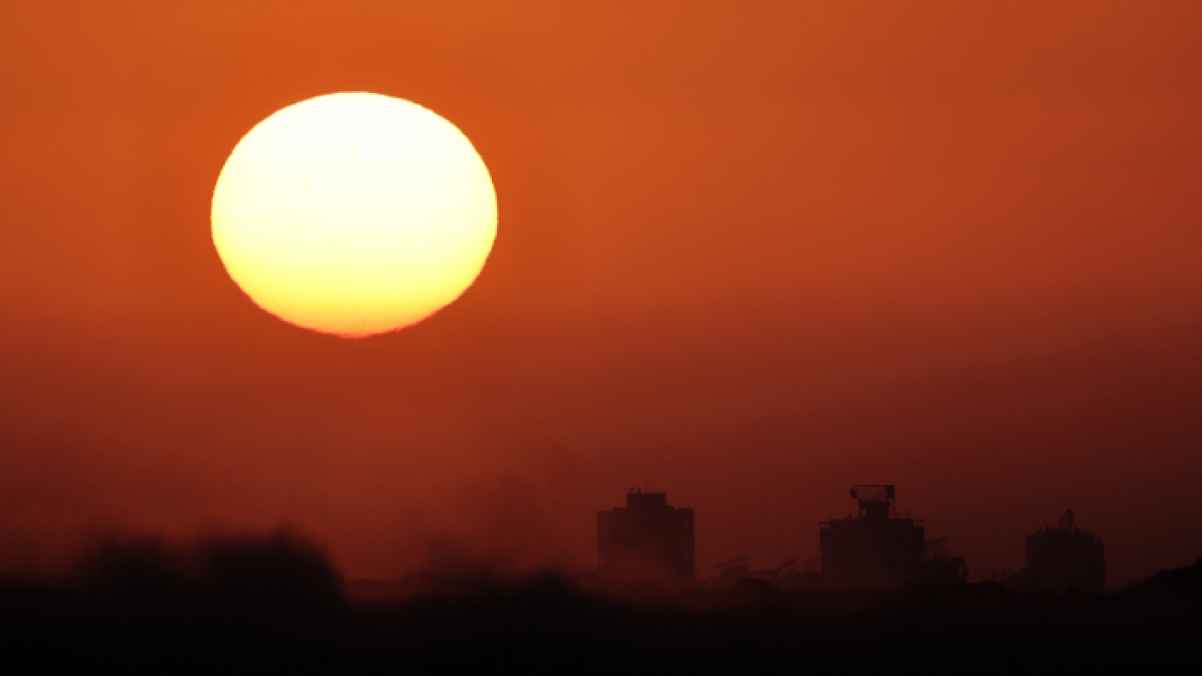The sun embraces Gaza... warmth passing silently over the sorrows

Despite the roar of warplanes and the clouds of gunpowder, Gaza awoke to a sun unafraid of war. It rose from behind the rubble like a mother calling her children, brushing broken walls and sleepless hearts with golden eyelids. It embraced the sky as if trying to return some warmth, some light, some hope to the people of Gaza.
In a land where the only sound of day is the wail of sirens, the sun came as if to console. It did not ask permission from the cannons, nor did it wait for silence. It crept across the faces of children who now sleep on bare ground, having lost their homes. It slipped into the open prison cells of narrow alleyways, and touched the shoulders of the sleepless fighters—for the land is still calling them.
Here, hunger is no metaphor. Dry loaves are divided among seven, and medicine is as rare as silence. Here, a person must fight just to remain human. And yet, a mother places a piece of bread in her child’s mouth and smiles. A grandfather tells his grandson stories of steadfastness, as if the Nakba is repeating itself—but dignity never breaks.
The sun knows Gaza. It knows that light does not defeat the dark—it reveals it. And when it embraces the skies of the besieged land, it does not beautify the scene, but bears witness to a people whose resilience cannot be massacred. To a people planting an olive tree in the heart of famine, and carrying a nation’s anthem in their funeral procession.
Above the scent of blood and smoke, the sun floats—silent, golden, and watching—a witness to a story that needs no words, only a conscience.
In Gaza, the number of broken hearts cannot be counted, and stories of loss are told only on the steps of shattered mosques, or in the corners of refugee camps where children cry without tears. Here, sorrow is not a condition—it is the air one breathes, the bitter bread one eats, and the long night broken only by new bombardments.
And yet, the sun comes every morning. It brings no medicine, stops no bleeding, but it embraces the city like a fearful mother gathering her wounded children. It spreads its warmth over trembling bodies, lets light slip over crumbling walls, as if to say, "I am still here... and I won’t leave you alone."
It cannot erase the pain, but it whispers that tomorrow may still carry life—and that beyond this rubble, a homeland must rise again.
